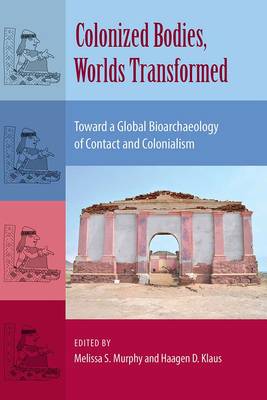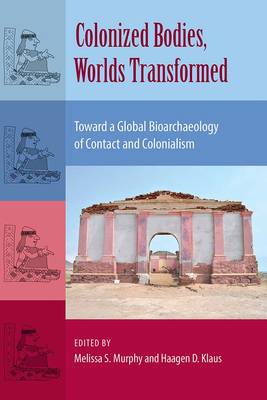
- Retrait gratuit dans votre magasin Club
- 7.000.000 titres dans notre catalogue
- Payer en toute sécurité
- Toujours un magasin près de chez vous
- Retrait gratuit dans votre magasin Club
- 7.000.0000 titres dans notre catalogue
- Payer en toute sécurité
- Toujours un magasin près de chez vous
Colonized Bodies, Worlds Transformed
Toward A Global Bioarchaeology of Contact and Colonialism
Description
"Breaks new ground regarding how to think about colonial encounters in innovative ways that pay attention to a wide range of issues from health and demography to identity formations and adaptation."--Debra L. Martin, coeditor of The Bioarchaeology of Violence
"Amply demonstrates the breadth and variability of the impact of colonialism."--Ken Nystrom, State University of New York at New Paltz
European expansion into the New World fundamentally altered Indigenous populations. The collision between East and West led to the most recent human adaptive transition that spread around the world. Paradoxically, these are some of the least scientifically understood processes of the human past. Representing a new generation of contact and colonialism studies, this volume expands on the traditional focus on the health of conquered peoples by considering how extraordinary biological and cultural transformations were incorporated into the human body and reflected in behavior, identity, and adaptation.
By examining changes in diet, mortuary practices, and diseases, these globally diverse case studies demonstrate that the effects of conquest reach further than was ever thought before--to both the colonized and the colonizers. People on all sides of colonial contact became entangled in cultural and biological transformations of social identities, foodways, social structures, and gene pools at points of contact and beyond. Contributors to this volume illustrate previously unknown and variable effects of colonialism by analyzing skeletal remains and burial patterns from never-before-studied regions in the Americas to the Middle East, Africa, and Europe. The result is the first step toward a new synthesis of archaeology and bioarchaeology.
Contributors: Rosabella Alvarez-Calderón Elliot H. Blair Maria Fernanda Boza Michele R. Buzon Romina Casali Mark N. Cohen Danielle N. Cook Marie Elaine Danforth J. Lynn Funkhouser Catherine Gaither Pamela García Laborde Ricardo A. Guichón Rocio Guichón Fernández Heather Guzik Amanda R. Harvey Barbara T. Hester Dale L. Hutchinson Kristina Killgrove Haagen D. Klaus Clark Spencer Larsen Alan G. Morris Melissa S. Murphy Alejandra Ortiz Megan A. Perry Emily S. Renschler Isabelle Ribot Melisa A. Salerno Matthew C. Sanger Paul W. Sciulli Stuart Tyson Smith Christopher M. Stojanowski David Hurst Thomas Victor D. Thompson Vera Tiesler Jason Toohey Lauren A. Winkler Pilar Zabala
Spécifications
Parties prenantes
- Editeur:
Contenu
- Nombre de pages :
- 464
- Langue:
- Anglais
- Collection :
Caractéristiques
- EAN:
- 9780813060750
- Date de parution :
- 31-01-17
- Format:
- Livre relié
- Format numérique:
- Genaaid
- Dimensions :
- 156 mm x 234 mm
- Poids :
- 911 g

Les avis
Nous publions uniquement les avis qui respectent les conditions requises. Consultez nos conditions pour les avis.





